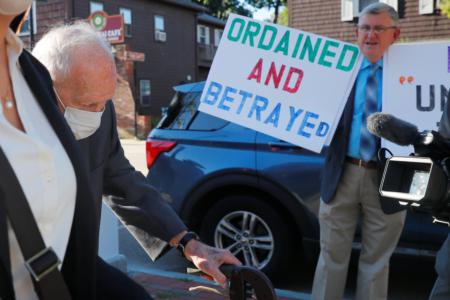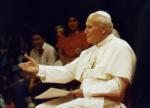A game within a game
A fascinating game-within-a-game took place the other night in a contest between the Red Sox and the Toronto Blue Jays. This was the situation: bottom of the seventh inning; Red Sox trailing, 2 to 1; two outs and a man on third base; right-handed pitcher Ryan Tepera was on the mound for Toronto; Eduardo Nunez was at the plate; catcher Sandy Leon was due up next, but he was in a bit of a slump (he hadn't had a base hit since Jimmy Carter was president); so Red Sox skipper Alex Cora put Mitch Moreland on deck to pinch hit if Nunez got on.
Are you familiar with the phrase, "once in a blue moon"? That's how often Eduardo Nunez walks. Nunez walked. Now there were men on first and third. Moreland advanced toward the plate to pinch hit for Leon. In the Toronto dugout manager John Gibbons had anticipated the situation, and he had a left-hander warmed up in the bullpen and ready to face the left-handed-batting Moreland. He was waiting for Moreland to be officially announced as the pinch hitter before making his move. Now Cora had several courses of action available. He could have left Moreland in to hit against the lefty or he could use the recently acquired Brandon Phillips, a right-handed hitter, to pinch hit for the pinch hitter. But that would mean that Moreland, having been officially announced as in the game, would not be eligible to be used later even though he never actually played. Cora wanted to preserve his options. He called Moreland back to the dugout before he'd been officially announced and sent Brock Holt, also a left-handed batter, up in his place. This came as a surprise to everyone in Fenway Park, including Holt, and probably Gibbons.
The Toronto skipper then decided that he'd rather see Holt, who at that point had only three home runs all season, hitting against a right-handed pitcher than have Brandon Phillips come up to bat against a left-hander, so he didn't go to the bullpen, but left the right-handed Tepera in to pitch to Holt. It is one of the anomalies of baseball that a pinch hitter can be replaced without actually hitting, but a pitcher, once he comes into a game, must pitch to at least one batter. Go figure.
All this cat-and-mouse action took place in a matter of seconds; if Cora had waited even another second or two, Moreland would have reported to the home plate umpire, thus triggering a chain of events beginning with Gibbons replacing Tepera with the left-hander, Brandon Phillips probably pinch hitting for Moreland, and who knows what would have happened next?
As it was, Holt settled the matter and the game by launching a three run homer into the right field grandstand, giving the Red Sox the lead and, as it turned out, the win. And Alex Cora looked like the smartest guy in all baseball.
In Boston the second-guessers were quiet the next day, but in Toronto one imagines they must have kicked it into overdrive.
This was unlike what happened a few nights before, when David Price entered the seventh inning with a 2 to 0 lead over the Houston Astros. But he gave up a leadoff double to Alex Bregman, and with one out he walked Tyler White. At that point he'd thrown 101 pitches. Cora, managing at this point in the year with one eye on the post-season and knowing Price's history of wearing down at that time of year, went to the bullpen -- with disastrous results. Houston scored three times in the seventh and three more in the eighth. The 2 to 0 lead had turned into a 6 to 3 loss.
To listen to the talk shows the next day you'd have thought that Alex Cora, the smartest guy in baseball against the Blue Jays, was the dumbest guy in baseball against the Astros. Such is the life of a big league manager, especially a Red Sox manager. Today's genius is tomorrow's dunce.
It's a risky business. Cora knew that he was taking a risk when he pulled Price out of the game when he did, and he paid dearly for it. But in that instance he was playing the long game. He bet that limiting Price's pitch-count in September will pay off in October. We'll see.
The truth is that a baseball manager has to make a lot of guesses during the course of a game. They are more educated guesses than the average fan makes -- he has the advantage of computerized analytics, the input of a whole staff of people in baseball operations, and vast personal experience (Cora might be just a rookie manager but he has spent his entire adult life seriously studying the game). In the end, though, he has to guess how a particular player will perform in a particular circumstance in a particular game.
That's just part of a baseball manager's job. He has to keep the clubhouse happy, or at least not let get out of control or rebellious. Then there is the medical staff and the coaches and the support personnel to look after, to say nothing of dealing with the media. Did I mention the baseball operations people upstairs? It ain't that easy.
Cora has landed on the right side of the genius/dunce equation much more often than not this year. He'll be the first to admit that it helps to have a talented ball club and the 2018 version of the Red Sox has a world of talent. As Casey Stengel famously said after leading the Yankees to a fifth consecutive World Series championship, "I couldn't a done it without the players."
On the other side of the ledger, Warren Spahn, the great left-hander who broke into the big leagues with the Stengel-managed and super-sized inept Boston Braves in 1943 and finished up with the woebegone New York Mets of 1965, also managed by Stengel, said of him, "I played for Casey before he was a genius and after he was a genius."
Crunch time is just around the corner for Alex Cora and the Boston Red Sox. Stay tuned.
- Dick Flavin is a New York Times bestselling author; the Boston Red Sox “Poet Laureate” and The Pilot’s recently minted Sports’ columnist.



















